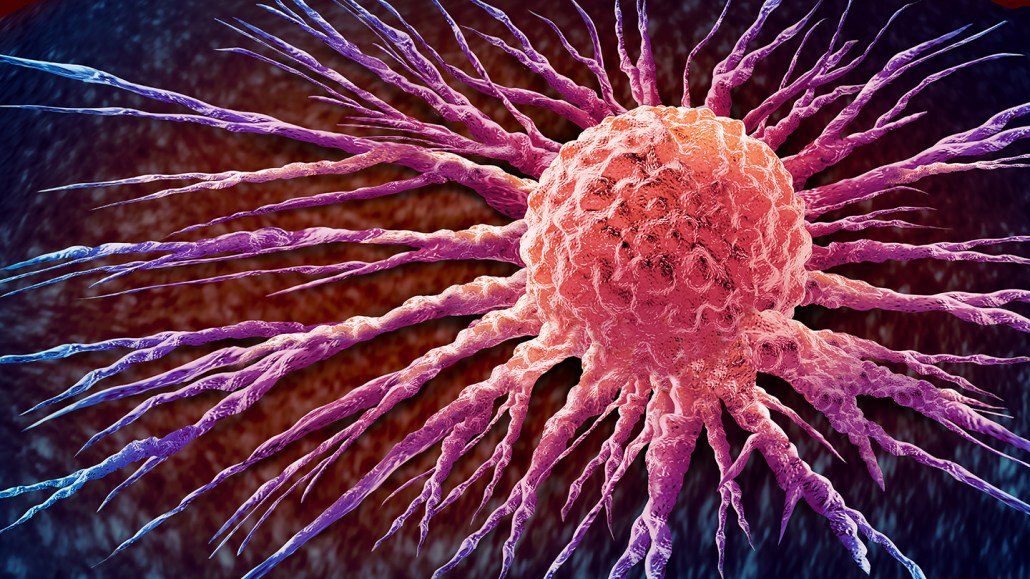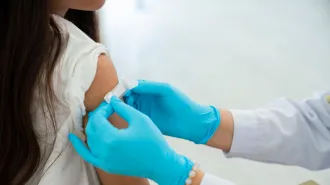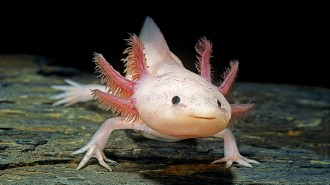The spread of breast cancer may be inherited
A variant of the gene PCSK9 may spur breast cancer’s spread. An approved antibody might stop it

A commonly inherited version of the PCSK9 gene may spur breast cancer cells to migrate to other parts of the body (metastasis illustrated). The gene is known for its role in raising cholesterol, and there's already a lab-made antibody for treating it that may also stop the cancer spread.
wildpixel/iStock/Getty Images Plus







